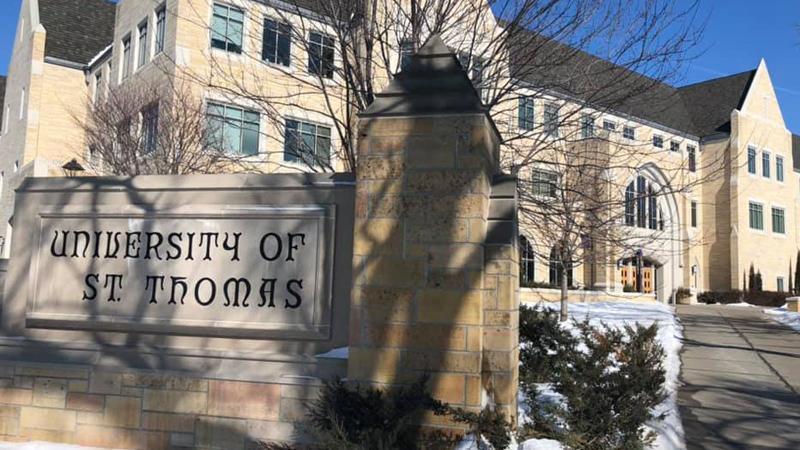St. Thomas to launch trauma institute for educators
[anvplayer video=”5004064″ station=”998122″]
As thousands of students head back to classrooms across Minnesota, some for the first time in 10 months, there is more concern than ever before.
Experts say trauma has always been there, even pre-COVID, but the pandemic has exacerbated the issues.
"COVID-19 highlighted, in my opinion, every inequity that existed," said Kathlene Campbell, dean of the School of Education at the University of St. Thomas.
What has been three years in the making at St. Thomas will be launching at a very important time. It’s called the Minnesota Institute for Trauma-Informed Education (MITIE).
It’s recognizing trauma that is triggered in the classroom and knowing how to deescalate it.

[KSTP/Brett Hoffland]
"When you deescalate it, it’s really being knowledgeable about, this child seems to be experiencing a traumatic episode, let me use specific language to try to make sure that I can calm down the situation without making it worse," Campbell said.
It’s an effort combining the expertise and insight from both the education school and the Morrison Family School of Health.
"It’s about teaching the adults in a school environment how to actually promote positive classroom behavior using methods that are coming out from other disciplines like social work and psychology," said MayKao Hang, vice president of strategic initiatives and dean of the Morrison Family College of Health at St. Thomas.
MITIE is now offering an online module for current teachers. This spring and fall, MITIE curriculum will be woven into current students’ coursework.
"Giving educators some tools to be able to handle some of those behaviors in terms of their own response, so they’re not re-triggering that kid, is really important," Hang added.
While it’s not intended for teachers to become social workers or counselors, these educators said it will help classrooms right away.
"What I am advocating for is for educators to support the work of social workers, to support the work of school psychologists because, quite frankly, there aren’t enough," Campbell said.
The institute is supported by contributions from the Sauer Family Foundation and the Carolyn Foundation.